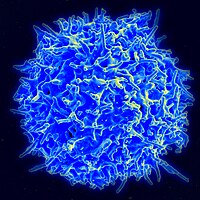
Photo from wikipedia
In order to investigate the usefulness of kitchen waste as compost for rice production, three groups of kitchen compost dosage gradients (15 t/hm2, 30 t/hm2, and 45 t/hm2) were established… Click to show full abstract
In order to investigate the usefulness of kitchen waste as compost for rice production, three groups of kitchen compost dosage gradients (15 t/hm2, 30 t/hm2, and 45 t/hm2) were established on the basis of field plot experiments, and the local common chemical fertilizer of equivalent nitrogen (1.88 t/hm2) and chicken manure compost (13.49 t/hm2) were used as controls for fertilization treatments. We measured and assessed rice yield, rice quality, soil nutrients and heavy metal content. The findings demonstrated that rice yields in the kitchen waste compost treatment were greater than the chemical fertilizer treatment in the equivalent nitrogen fertilizer condition. Comparing kitchen waste compost to chemical fertilizer and chicken manure compost treatments, kitchen waste compost greatly decreased the chalkiness of rice and significantly enhanced flavor quality. The 15 t/hm2 kitchen waste compost treatment greatly decreased the Hg concentration in rice in terms of safety quality. There was no discernible difference between the treatments in terms of the other residual rice heavy metal content, which was within the Chinese national standard's allowable limits. The addition of kitchen waste compost to the soil improved the soil's organic matter and fast-acting potassium contents. Regarding the safety of the soil, none of the treatments went beyond the heavy metals limit, and the levels were substantially below the maximum allowed by the Chinese national standard and were within the safe range. This demonstrates that, in line with national requirements, kitchen waste compost is an acceptable substitute for chemical fertilizers that provide the same amount of nitrogen for rice growing and is safe for agricultural soils.
Journal Title: Polish Journal of Environmental Studies
Year Published: 2023
Link to full text (if available)
Share on Social Media: Sign Up to like & get
recommendations!